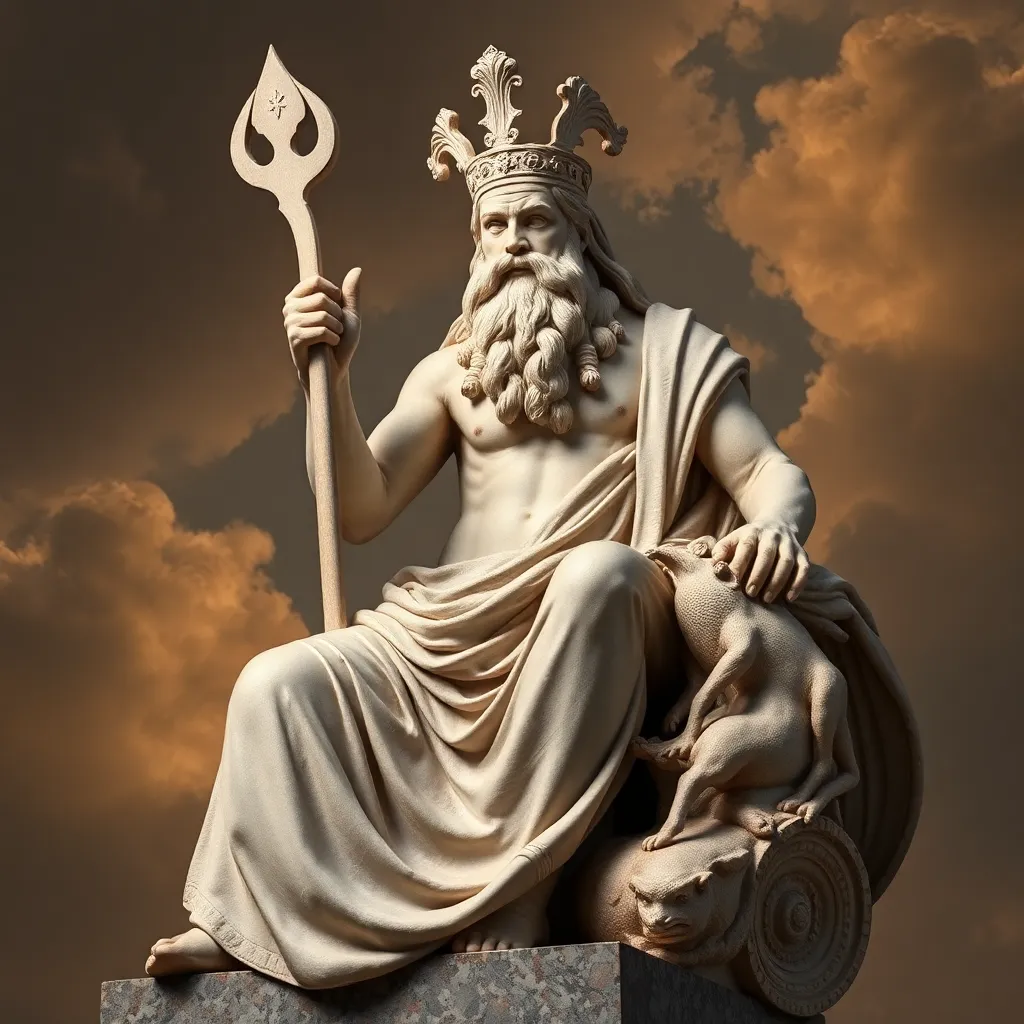The Influence of Zeus on Greek Comedy: Satire and Divine Figures
I. Introduction
Greek comedy is a significant aspect of ancient culture, providing entertainment while also critiquing social norms, politics, and human behavior. It emerged as a vital form of theatrical expression, particularly during festivals honoring the gods, where laughter and critique intertwined. Among the pantheon of Greek deities, Zeus, the king of the gods, stands out as a central figure, representing authority, power, and the complexities of divine intervention in human affairs.
This article explores the profound influence of Zeus on Greek comedic narratives, examining how his character has been portrayed, satirized, and utilized within the comedic framework to reflect human follies and societal norms.
II. Historical Context of Greek Comedy
Greek comedy has its origins in the fertility festivals of ancient Greece, particularly the Dionysia, where performances served both religious and entertainment purposes. Over time, it evolved into distinct styles, marking a transition from Old Comedy to New Comedy.
- Old Comedy: Characterized by its fantastical plots, political satire, and overtly humorous tone, Old Comedy featured prominent playwrights like Aristophanes, who used the stage to address contemporary issues.
- New Comedy: Emerging later, New Comedy focused more on everyday life and human relationships, with playwrights like Menander shifting away from political satire to more personal and social themes.
This evolution reflects the changing dynamics of Greek society, where comedy adapted to mirror the values and challenges of its time.
III. Zeus as a Symbol of Authority and Power
As the chief deity of the Greek pantheon, Zeus embodies the essence of authority and power. He is often depicted as a ruler who oversees both gods and mortals, making him a prominent figure in many comedic works.
In comedic narratives, Zeus often serves as a representation of divine authority, symbolizing the ultimate power that governs the universe. His character frequently serves as a foil for human folly, highlighting the absurdities of human behavior in contrast to his divine nature.
IV. Satirical Elements in Greek Comedy
Satire, a literary genre that uses humor, irony, and exaggeration to criticize or mock, plays a crucial role in Greek theater. In comedic works, divine figures, particularly Zeus, are often targets of satire.
- Definition of Satire: Aimed at prompting reflection and change, satire in Greek comedy often tackles political issues, societal norms, and ethical dilemmas.
- Zeus as a Target: Writers like Aristophanes utilized Zeus to critique not only the gods but also the failings of human rulers and society. For instance, in “The Clouds,” Zeus is portrayed as being out of touch with the realities faced by mortals.
These satirical elements encourage audiences to reflect on the nature of authority and the absurdities of their own lives.
V. The Role of Divine Intervention in Comedy
The divine interventions of Zeus often drive the plots of Greek comedies, creating scenarios filled with mischief and chaos. His actions frequently lead to unexpected outcomes for the characters involved.
- Driving Comedic Plots: Interventions by Zeus can propel characters into humorous situations, as seen when his whims create conflicts that lead to comedic resolutions.
- Mischief and Chaos: Zeus’s unpredictable nature introduces a level of chaos that enhances the comedic effect, contrasting divine intentions with human follies.
This interplay between divine will and human action underscores the comedic narrative, illustrating the absurdity of life under divine oversight.
VI. Characterization of Zeus in Comedic Contexts
The characterization of Zeus varies across different comedic works, offering a nuanced portrayal that can be both serious and humorous.
- Variations in Portrayal: In some plays, Zeus is depicted as a wise ruler, while in others, he embodies flaws and engages in petty disputes, showcasing the duality of his character.
- Flawed Character: This flaw in Zeus allows playwrights to explore themes of power and responsibility, inviting audiences to consider the implications of divine authority in their own lives.
The satirical depiction of Zeus not only entertains but also challenges societal norms, prompting reflections on the nature of power and human behavior.
VII. Reception and Impact of Zeus in Greek Comedy
The portrayal of Zeus in comedic narratives elicited varied reactions from audiences. While some viewed these representations as blasphemous, others appreciated the critique of divine figures and authority.
- Audience Reactions: The humor derived from Zeus’s portrayal often resonated with the audience, leading to laughter and reflection on the nature of their society.
- Influence on Literature: The legacy of Zeus in Greek comedy influenced subsequent literary and theatrical traditions, shaping how divine figures are represented in modern storytelling.
Today, the lasting legacy of Zeus continues to inspire interpretations of comedy, reflecting the timeless nature of humor and critique.
VIII. Conclusion
In summary, the influence of Zeus on Greek comedy is profound, as his character serves not only as a source of humor but also as a vehicle for satire and social critique. Through the lens of comedy, Zeus becomes a reflection of human follies, societal norms, and the complexities of power.
The interplay between satire and divine figures in Greek comedic literature highlights the importance of humor as a tool for reflection and change, making Zeus an enduring symbol in the world of comedy.




